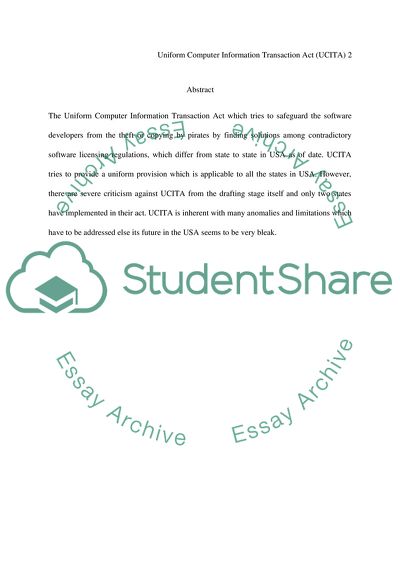Cite this document
(Uniform Computer Information Transaction Act Coursework, n.d.)
Uniform Computer Information Transaction Act Coursework. https://studentshare.org/law/1789250-uniform-computer-information-transaction-act-ucita
Uniform Computer Information Transaction Act Coursework. https://studentshare.org/law/1789250-uniform-computer-information-transaction-act-ucita
(Uniform Computer Information Transaction Act Coursework)
Uniform Computer Information Transaction Act Coursework. https://studentshare.org/law/1789250-uniform-computer-information-transaction-act-ucita.
Uniform Computer Information Transaction Act Coursework. https://studentshare.org/law/1789250-uniform-computer-information-transaction-act-ucita.
“Uniform Computer Information Transaction Act Coursework”. https://studentshare.org/law/1789250-uniform-computer-information-transaction-act-ucita.


